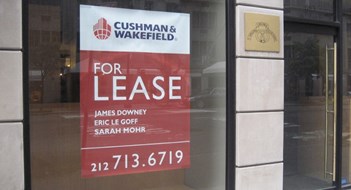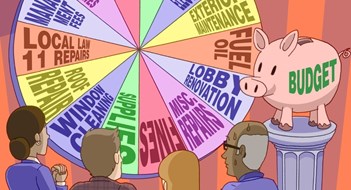In the last two years, Fannie Mae has amended it’s guidelines for selling and serving mortgages on condominiums, cooperatives, and planned unit developments three times. Why should service providers, cooperative corporations and communi…


In the last two years, Fannie Mae has amended it’s guidelines for selling and serving mortgages on condominiums, cooperatives, and planned unit developments three times. Why should service providers, cooperative corporations and communi…

Proposed legislation by the New York City Council to require energy audits, while a nice idea, is extremely cost-prohibitive especially in today’s economy. The bottom line is that the spending proposed in this bill (Intro 967) will be t…

In today’s harsh economic times, maintaining a healthy reserve fund is more important than ever. A co-op or condo’s reserve fund can be used to cover any number of emergency expenses from sudden repairs to legal costs. In addition, a re…

Fresh from hoisting up the banking and automobile sectors, a newly muscular Uncle Sam is now turning his attention to putting the skids on the real estate meltdown. The Obama Administration earlier this year rolled out two maj…

Unemployment is up and apartment sales are down. That’s the trend of headline news lately. But, so far, New York City co-ops and condominiums seem to be weathering the storm in reasonably good shape. According to those close to the situ…

When you walk down many large commercial thoroughfares in New York, whether it’s Fifth or Madison Aevnue in Manhattan, Kings Highway in Brooklyn or Main Street in Flushing, you’re sure to notice many more empty stores than usual—living p…

Not so very long ago, pretty much any individual or corporate entity could get a loan quickly and easily, with only some cursory paperwork separating borrower from lender. The so-called subprime mortgage crisis put a stop to all that, a…

Even in the best of economic times, preparing a co-op or condo’s annual budget can be a tiresome task, fraught with uncertainty, estimations and shifting numbers. Factor in one of the most harrowing economic downturns in a century, with…

How many times have you seen a property that’s a mess and visually unappealing with so much furniture and furnishings that it is impossible to see anything? There are cracks that need spackling, walls that need cleaning, and floors that…

Few things annoy an apartment homeowner more than persistent low water pressure, be it at the shower, the kitchen sink or the toilet. So common the problem, one wonders what New Yorker hasn’t suffered from it and what property manager h…